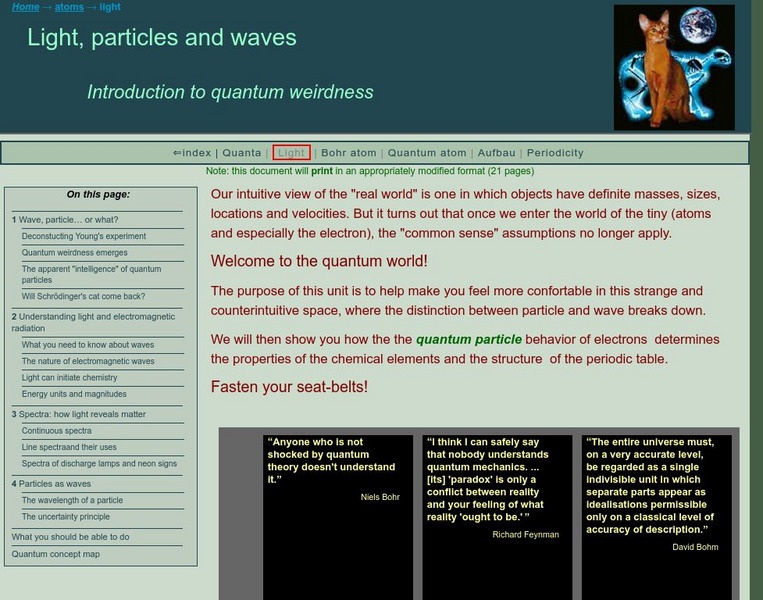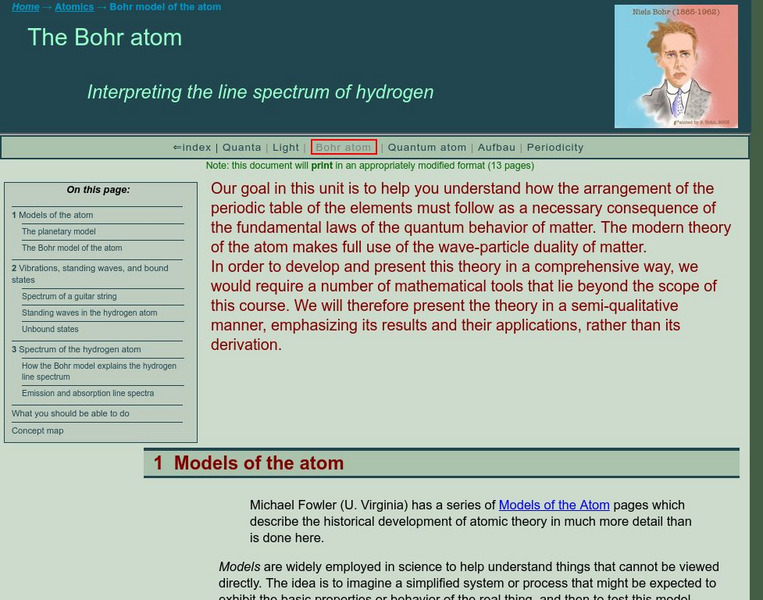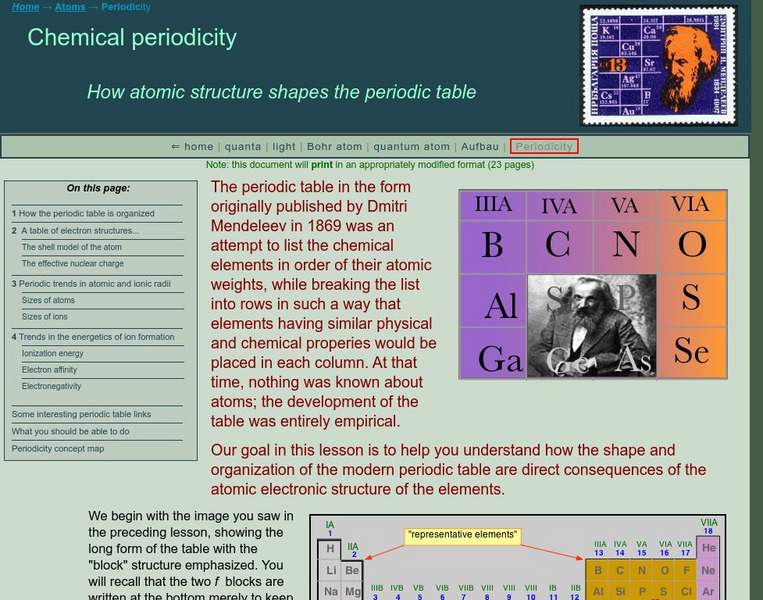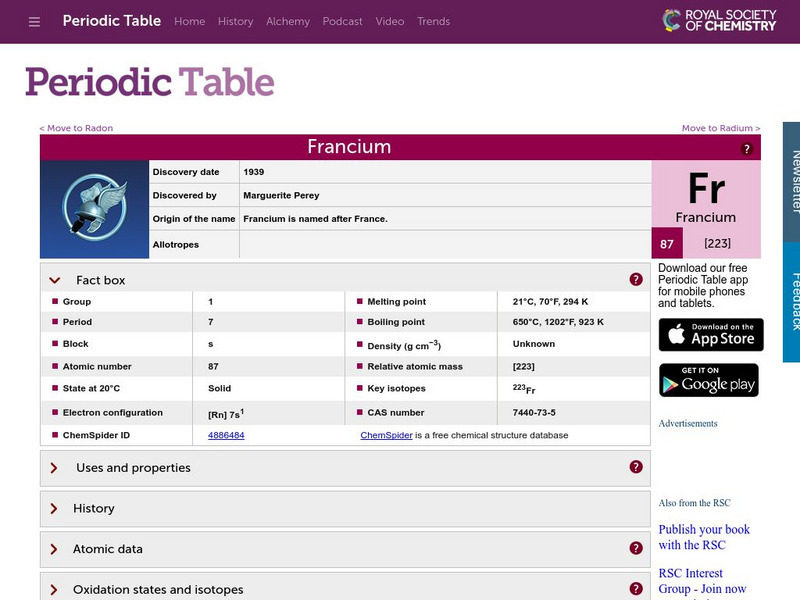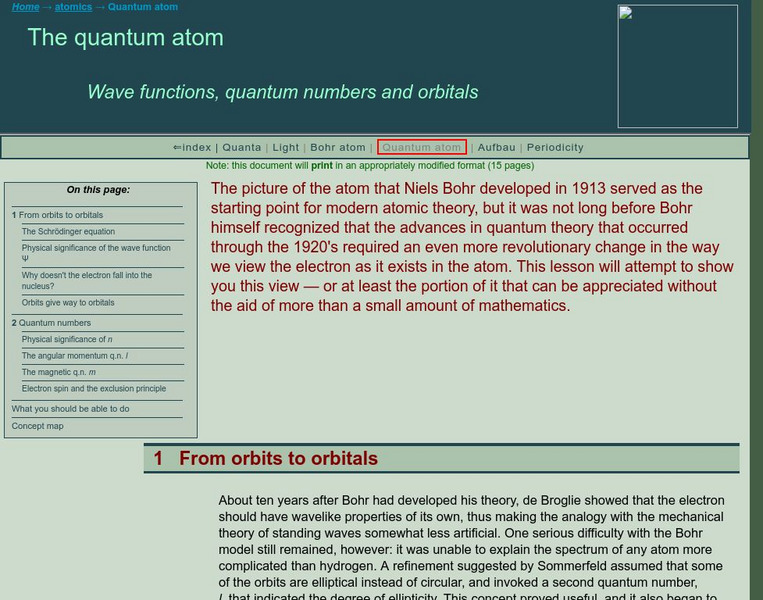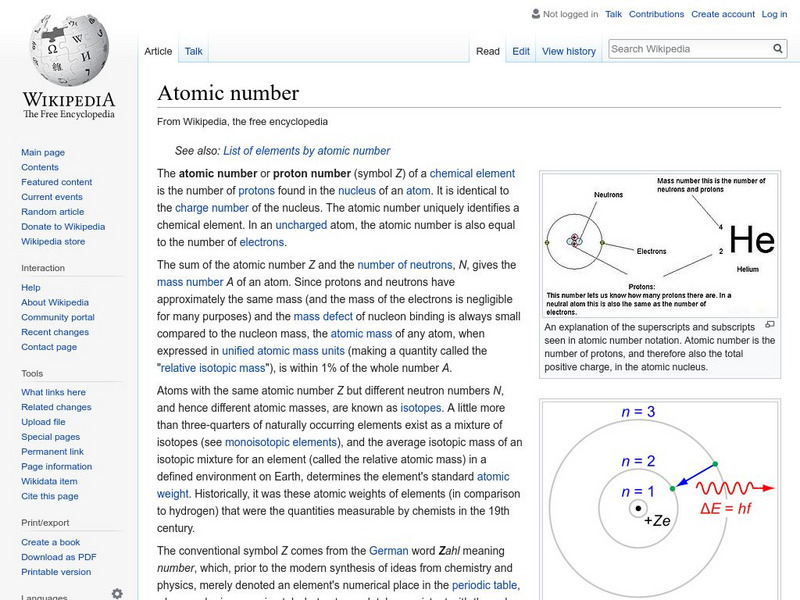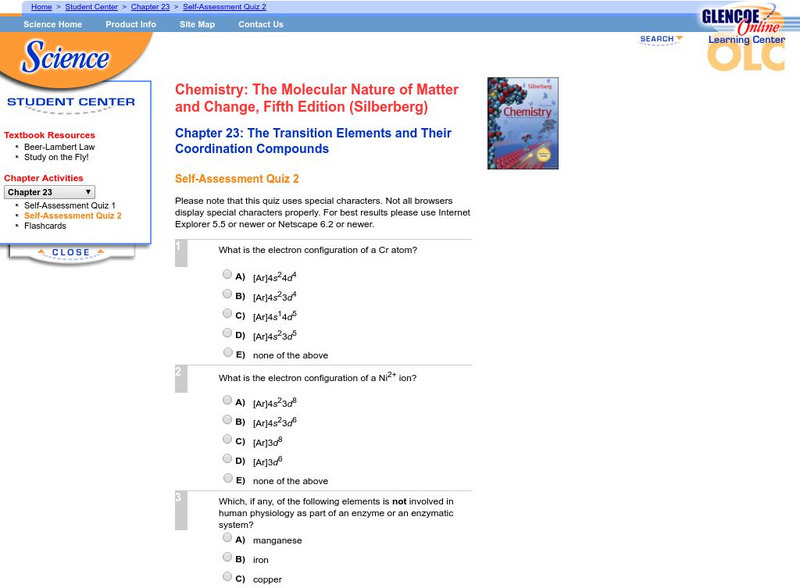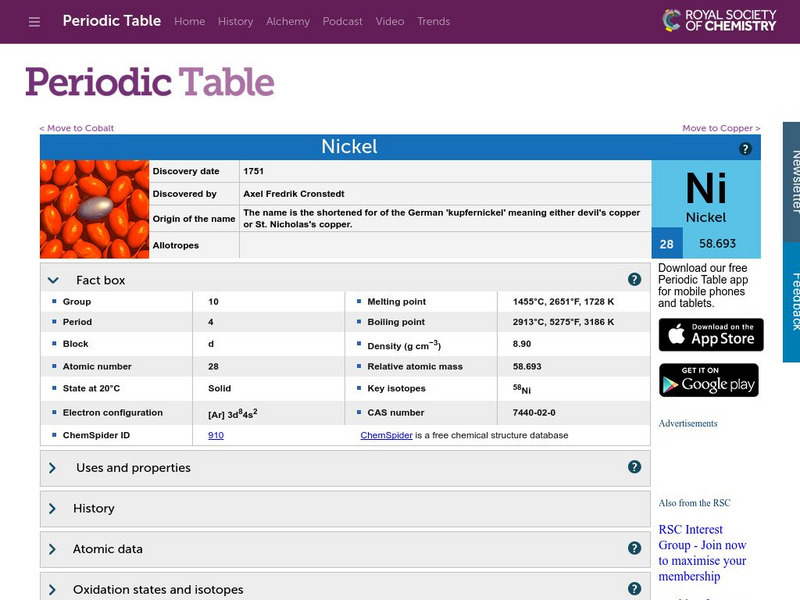Simon Fraser University
Chem1 Virtual Textbook: Particles and Waves
Acting as a subtopic of the General Chemistry Virtual Textbook's section on Atoms and the Periodic Table, this site discusses wavelength and the uncertainty principle. Information is also provided on de Broglie wavelength and electron...
Simon Fraser University
Chem1 Virtual Textbook: The Uncertainty Principle
Acting as a subtopic of the General Chemistry Virtual Textbook's section on Atoms and the Periodic Table, this site discusses the uncertainty principle and its association with Werner Heisenberg.
Simon Fraser University
Chem1 Virtual Textbook: Spectrum of a Guitar String
Acting as a subtopic of the General Chemistry Virtual Textbook's section on Atoms and the Periodic Table, this site discusses spectrum in relation to Bohr's model. Included in the topics covered are standing waves, boundary condition,...
Simon Fraser University
Chem1 Virtual Textbook: Emission and Absorption Spectra
Acting as a subtopic of the General Chemistry Virtual Textbook's section on Atoms and the Periodic Table, this site specifically discusses emission and absorption spectra in relation to the Bohr model.
Simon Fraser University
Chem1 Virtual Textbook: Electron Spin and the Exclusion Principle
Acting as a subtopic of the General Chemistry Virtual Textbook's section on Atoms and the Periodic Table, this site discusses electron spin with related topics, such as the Pauli exclusion principle, quantum numbers, and more.
Simon Fraser University
Chem1 Virtual Textbook: Effective Nuclear Charge
Acting as a subtopic of the General Chemistry Virtual Textbook's section on Atoms and the Periodic Table, this site discusses the core charge of the atom, otherwise termed the nuclear charge.
Simon Fraser University
Chem1 Virtual Textbook: Electronegativity
Acting as a subtopic of the General Chemistry Virtual Textbook's section on Atoms and the Periodic Table, this site discusses shared chemical bonds between two elements resulting in electronegative and electropositive outcomes.
Royal Society of Chemistry
Royal Society of Chemistry: Visual Elements: Silicon
Very short entry describing silicon.
Royal Society of Chemistry
Royal Society of Chemistry: Visual Elements: Selenium
Short entry describing selenium and a couple of its uses.
Royal Society of Chemistry
Royal Society of Chemistry: Europium
Short summary of a description of europium, along with its uses.
Royal Society of Chemistry
Royal Society of Chemistry: Francium
This resource offers a short descriptive summary of francium.
Royal Society of Chemistry
Royal Society of Chemistry: Fluorine
This resource presents a short summary of some descriptive information on fluorine.
Royal Society of Chemistry
Royal Society of Chemistry: Fermium
This resource presents a short summary of some interesting information on fermium.
Simon Fraser University
Chem1 Virtual Textbook: Physical Significance of the Wave Function
Acting as a subtopic of the General Chemistry Virtual Textbook's section on Atoms and the Periodic Table, this site discusses the wave function in relation to orbitals and continual waves.
Simon Fraser University
Chem1 Virtual Textbook: Movement of the Electron
Acting as a subtopic of the General Chemistry Virtual Textbook's section on Atoms and the Periodic Table, this site seeks to answer the question, "Why doesn't the electron fall into the nucleus?"
Wikimedia
Wikipedia: Atomic Number
Wikipedia provides the definition of the term, "Atomic number," a term used in chemistry and physics to represent the number of protons in the nucleus of an atom.
McGraw Hill
Mc Graw Hill: Transition Elements: Self Assessment Quiz 2
A self-assessment quiz accompanying Chapter 23 of the text, Chemistry: The Molecular Nature of Matter and Change, Fifth Edition. The title of the chapter is "The Transition Elements and Their Coordination Compounds."
Other
Introduction to Nitrogen Functional Groups
This organic chemistry tutorial describes the general class of nitrogen functional group compounds (amines and amides).
Knowledge Share
Super Kids: Hangman
Use this interactive site to enhance students' spelling and vocabulary while refreshing their memories in history, geography, language, science, and entertainment. It is available to use on line or you can purchase leveled apps for the...
Curated OER
Effective Nuclear Charge Periodic Trends
Acting as a subtopic of the General Chemistry Virtual Textbook's section on Atoms and the Periodic Table, this site discusses the properties of the atoms individually in relation to the main group elements of the Periodic Table.
Royal Society of Chemistry
Royal Society of Chemistry: Californium
Very nice site with some of the most current information available on californium. Very well organized and easy to follow.
Royal Society of Chemistry
Royal Society of Chemistry: Cobalt
A short summary of basic information on cobalt, including history.
Royal Society of Chemistry
Royal Society of Chemistry: Nickel
The ChemicalSociety provides a short page summarzing some important information on nickel, as well as some health information.
Royal Society of Chemistry
Royal Society of Chemistry: Nielsbohrium
A short summary of what little is known about this element.



